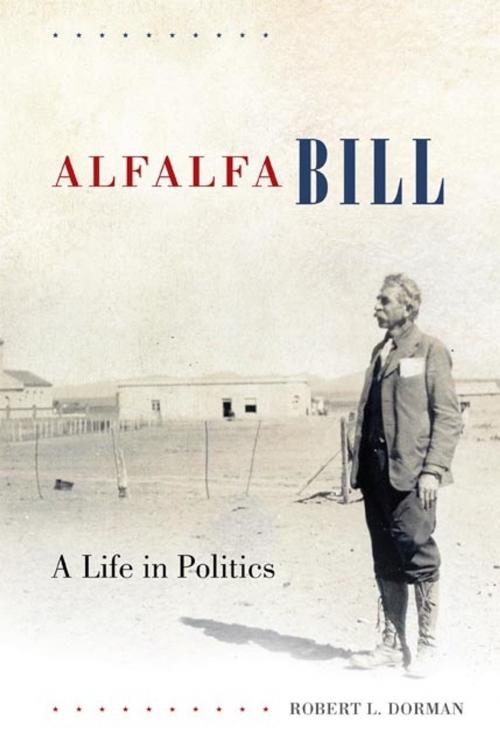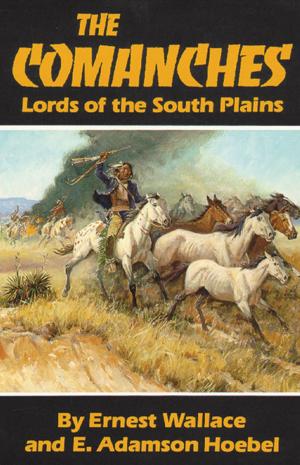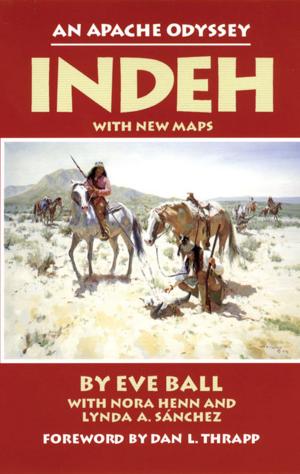Alfalfa Bill
A Life in Politics
Biography & Memoir, Political, Nonfiction, History, Americas, United States| Author: | Robert L. Dorman | ISBN: | 9780806162195 |
| Publisher: | University of Oklahoma Press | Publication: | October 4, 2018 |
| Imprint: | University of Oklahoma Press | Language: | English |
| Author: | Robert L. Dorman |
| ISBN: | 9780806162195 |
| Publisher: | University of Oklahoma Press |
| Publication: | October 4, 2018 |
| Imprint: | University of Oklahoma Press |
| Language: | English |
In this masterful biography, Robert L. Dorman traces the career of William H. “Alfalfa Bill” Murray from his hardscrabble childhood in post–Civil War Texas to his remarkable ascendancy as a nationally known political figure in the mid-twentieth century. The first comprehensive portrait of Murray to be published in fifty years, Alfalfa Bill is both the exploration of a larger-than-life personality and an illuminating account of the birth of political conservatism in Oklahoma.
As Dorman reveals, no political label readily fit Murray. The core conservatism of his Texas years was caught up in the ferment of three major periods of American reform—the Populist uprising, the Progressive Era, and the New Deal. Over his long career, Murray strongly advocated for states’ rights, limited government, and strict constitutionalism, yet he was also a consistent foe of corporations and concentrated wealth. The society he sought was small-scale, decentralized, agrarian—and racially segregated. Although he claimed to represent high principles, Murray as a politician was an opportunist, loved a good fight, had a flair for the theatrical, and hungered for power.
Dorman depicts Murray from his days as a political operative in the Chickasaw Nation to his leadership of the Oklahoma Constitutional Convention, and from the Speaker’s chair of the Oklahoma legislature to the halls of Congress. The book follows Murray’s quixotic attempt to found an agricultural colony in Bolivia, and chronicles his amazing Oklahoma comeback in the 1930 gubernatorial election. The final chapters detail Murray’s legendary term as state governor, his failed candidacy for president, and his emergence as a fierce critic of New Deal liberalism and racial desegregation.
Unlike earlier biographies of Murray, Alfalfa Bill brings issues of race, class, and gender to the forefront, often in surprising ways. On the surface, the Murray saga was an American success story, yet his rise came at a price for Murray himself, his family, and the people of the state he helped to create. An indelible portrait emerges of an ambitious, domineering, relentless, and unapologetically racist figure whose tarnished legacy seems painfully relevant in America’s current political climate.
In this masterful biography, Robert L. Dorman traces the career of William H. “Alfalfa Bill” Murray from his hardscrabble childhood in post–Civil War Texas to his remarkable ascendancy as a nationally known political figure in the mid-twentieth century. The first comprehensive portrait of Murray to be published in fifty years, Alfalfa Bill is both the exploration of a larger-than-life personality and an illuminating account of the birth of political conservatism in Oklahoma.
As Dorman reveals, no political label readily fit Murray. The core conservatism of his Texas years was caught up in the ferment of three major periods of American reform—the Populist uprising, the Progressive Era, and the New Deal. Over his long career, Murray strongly advocated for states’ rights, limited government, and strict constitutionalism, yet he was also a consistent foe of corporations and concentrated wealth. The society he sought was small-scale, decentralized, agrarian—and racially segregated. Although he claimed to represent high principles, Murray as a politician was an opportunist, loved a good fight, had a flair for the theatrical, and hungered for power.
Dorman depicts Murray from his days as a political operative in the Chickasaw Nation to his leadership of the Oklahoma Constitutional Convention, and from the Speaker’s chair of the Oklahoma legislature to the halls of Congress. The book follows Murray’s quixotic attempt to found an agricultural colony in Bolivia, and chronicles his amazing Oklahoma comeback in the 1930 gubernatorial election. The final chapters detail Murray’s legendary term as state governor, his failed candidacy for president, and his emergence as a fierce critic of New Deal liberalism and racial desegregation.
Unlike earlier biographies of Murray, Alfalfa Bill brings issues of race, class, and gender to the forefront, often in surprising ways. On the surface, the Murray saga was an American success story, yet his rise came at a price for Murray himself, his family, and the people of the state he helped to create. An indelible portrait emerges of an ambitious, domineering, relentless, and unapologetically racist figure whose tarnished legacy seems painfully relevant in America’s current political climate.















